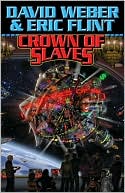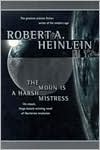They always say that freedom isn’t free. Sometimes we forget that the United States of America was a grand experiment when it was first formed. No country had ever tried to actually implement the novel idea of widespread democracy before, even on the somewhat limited basis upon which our Founding Fathers made their attempt in 1776. It was limited based on the standards we have now. I could not have voted. I am female, and that would have disqualified me. And gender was not the only restriction in the 1700’s. The Declaration of Independence was a start, not an end.
History doesn’t allow “do-overs”. Time marches on, and we all live with the results. But alternate history is the art of speculating about the “what-ifs”. What if history had marched down a different path? Alternately, no pun intended, what if something like the American Revolution happened on some other world? Science-fictionally speaking, of course.
 Eric Flint’s 1632 series is one of the most fun alternate history series that I’ve run across. The first book in the series is 1632, but Flint kept going. Independence Day brought it to mind because the story is about transplanting middle-American values, virtues and gumption to an extremely unlikely time and place, and recreating the practical parts of the United States somewhere and somewhen they should never have been. In the opening of 1632, Grantville, West Virginia is in the middle of celebrating a wedding between the younger sister of the local president of the United Mine Workers of America and the son of one of the wealthiest steel families from Pittsburgh. A lot of college friends and their families have come to this small and otherwise slowly dying town in West Virginia coal country, population 5,000 hardy souls, augmenting the mix of professionals and regular folks just enough to make things interesting when the disaster happens. Grantville and its environs get scooped out of the ground in late 20th century America and deposited in Thuringia, in western Saxony, in 1632, in the middle of the Thirty Years’ War.
Eric Flint’s 1632 series is one of the most fun alternate history series that I’ve run across. The first book in the series is 1632, but Flint kept going. Independence Day brought it to mind because the story is about transplanting middle-American values, virtues and gumption to an extremely unlikely time and place, and recreating the practical parts of the United States somewhere and somewhen they should never have been. In the opening of 1632, Grantville, West Virginia is in the middle of celebrating a wedding between the younger sister of the local president of the United Mine Workers of America and the son of one of the wealthiest steel families from Pittsburgh. A lot of college friends and their families have come to this small and otherwise slowly dying town in West Virginia coal country, population 5,000 hardy souls, augmenting the mix of professionals and regular folks just enough to make things interesting when the disaster happens. Grantville and its environs get scooped out of the ground in late 20th century America and deposited in Thuringia, in western Saxony, in 1632, in the middle of the Thirty Years’ War.
Why is this fun? Because the inhabitants don’t just sit on their hands and cry about what they’ve lost. They realize pretty quickly that they are in it for the long haul, and that the history in the books in the high school library they brought with them has been changed, forever. There is a major politcal fight about values. Will they be an exclusionary enclave, or will they openly expose American values, like democracy and freedom and religious tolerance, to the surrounding area, knowing that those ideas and values are somewhere between revolutionary and heretical in the 1600s? How much history will they manipulate? For a little while, they know who lives and who dies, and how to prevent it. What should they do? How much of an industrial revolution should they start, and how much can they maintain? The lessons in the “art of the possible” were fascinating.
 Some Revolutions are born in fire. David Weber’s space opera series of the adventures of Honor Harrington has grown to contain some stories that are sidebars to Honor’s main story arc. Among the stories in what is referred to as the Honorverse is the story of the liberation of the slave planet Torch from the slave-masters corporation, Mesa. In Crown of Slaves, the opening of the story, incompetence on the part of one Star Empire’s ministers, plus an assassination of the person who was the voice of conscience of another, impatience on the part of a third, hyper-competent spying on the part of a fourth, and terrorism and kidnapping by the understandably radical freed slaves’ organization leads to the creation of Torch. In Torch of Freedom, the second book, the newly-freed slaves must defend their freedom from their former masters and learn to become a government instead of a radical terrorist group. The second is sometimes more difficult than the first.
Some Revolutions are born in fire. David Weber’s space opera series of the adventures of Honor Harrington has grown to contain some stories that are sidebars to Honor’s main story arc. Among the stories in what is referred to as the Honorverse is the story of the liberation of the slave planet Torch from the slave-masters corporation, Mesa. In Crown of Slaves, the opening of the story, incompetence on the part of one Star Empire’s ministers, plus an assassination of the person who was the voice of conscience of another, impatience on the part of a third, hyper-competent spying on the part of a fourth, and terrorism and kidnapping by the understandably radical freed slaves’ organization leads to the creation of Torch. In Torch of Freedom, the second book, the newly-freed slaves must defend their freedom from their former masters and learn to become a government instead of a radical terrorist group. The second is sometimes more difficult than the first.
 And last, but not least, Robert A. Heinlein’s Moon is a Harsh Mistress. This was the last of his four Hugo award winners for best novel. The concept is not unfamiliar. If man colonized the moon and then used it as a penal colony, what would happen? The science of why it would be a one-way, multigenerational trip is probably way off, but long-distance penal colonies have certainly been done before. Australia being the best known example, but Georgia was also a penal colony. And if the penal colony was a multigenerational one-way trip, so that a sentence condemned future generations to indentured servitude with no way out, what would the eventual result be? Revolution?
And last, but not least, Robert A. Heinlein’s Moon is a Harsh Mistress. This was the last of his four Hugo award winners for best novel. The concept is not unfamiliar. If man colonized the moon and then used it as a penal colony, what would happen? The science of why it would be a one-way, multigenerational trip is probably way off, but long-distance penal colonies have certainly been done before. Australia being the best known example, but Georgia was also a penal colony. And if the penal colony was a multigenerational one-way trip, so that a sentence condemned future generations to indentured servitude with no way out, what would the eventual result be? Revolution?
There are four main characters in Moon. Manny, a computer technician who discovers late one night that the computer he has been working on all these years has actually become self aware. Wyoming Knot, known as Wyoh, a young political agitator who has spent her entire life traveling from colony to drum up support for a revolution. The Professor, an elderly academic, recently committed to the Moon, who has realized that the Lunar economy/ecology is running on empty. And finally, Mike, the self-aware computer. Mike might be Data’s great-grandfather, or at least a great-uncle. Mike wants to save his friends, now that he knows what friendship is. He will save them no matter what it might cost him. And Mike, just like Data, can calculate the exact odds of success–or failure.
If anyone ever says, “TANSTAAFL” to you, and you wonder where it comes from, it’s from Moon. It’s an abbreviation for “There ain’t no such thing as a free lunch”. There wasn’t for Mike, and it’s still true.
